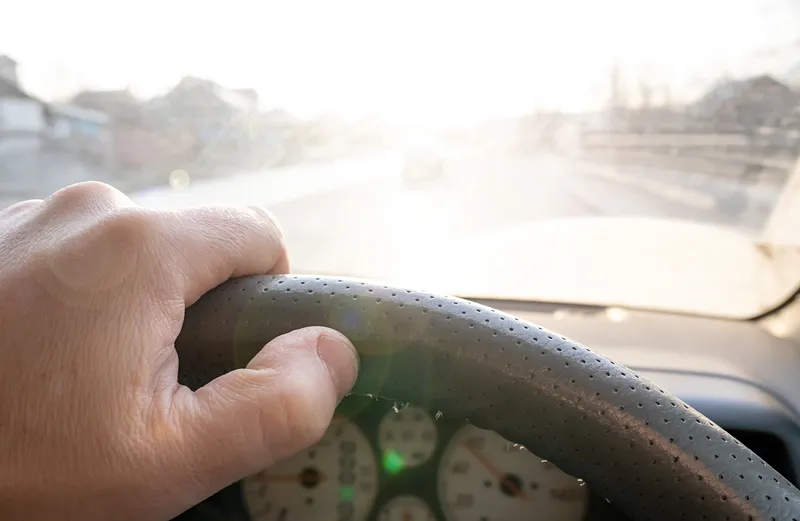
Cycling UK is urging people to take care when driving at times when the sun is lower in the sky in the early morning or late afternoon - as it is now with clock changes in the northern hemisphere autumn.
According to road casualty statistics, on average over the five years from 2017-21, 28 people die on Britain’s roads each year in incidents where ‘dazzling sun’ is recorded as a contributory factor. Of these 74% (21) are vulnerable road users (VRUs), such as pedestrians, cyclists or motorcyclists.
Over the same period on average 2,876 road users were also injured, with 35% (1,013) of these people VRUs
The organisation says this is despite cyclists and motorcyclists combined only making up about 2% of vehicle mileage on Britain’s roads - only around 4% of the miles people travel each year are walked.
“In the UK it sometimes feels that we assume casualties on our roads are inevitable, but behind every one of those numbers is a tale of untold and unnecessary tragedy – especially where ‘dazzling sun’ is said to be a contributory factor," says Duncan Dollimore, Cycling UK’s head of campaigns.
“When we drive it is simple. If we cannot see the road ahead clearly – whether caused by low sun or fog – we need to adjust how we drive. That means slowing down and where appropriate and safe to do so, stopping until we have clear visibility of the road again."
“In the UK it sometimes feels that we assume casualties on our roads are inevitable, but behind every one of those numbers is a tale of untold and unnecessary tragedy – especially where ‘dazzling sun’ is said to be a contributory factor."
"The sun doesn't just appear by magic and in many of these cases where drivers claim to have been dazzled by the sun questions should be asked about why they weren’t anticipating those conditions, or hadn’t modified their driving in response."







